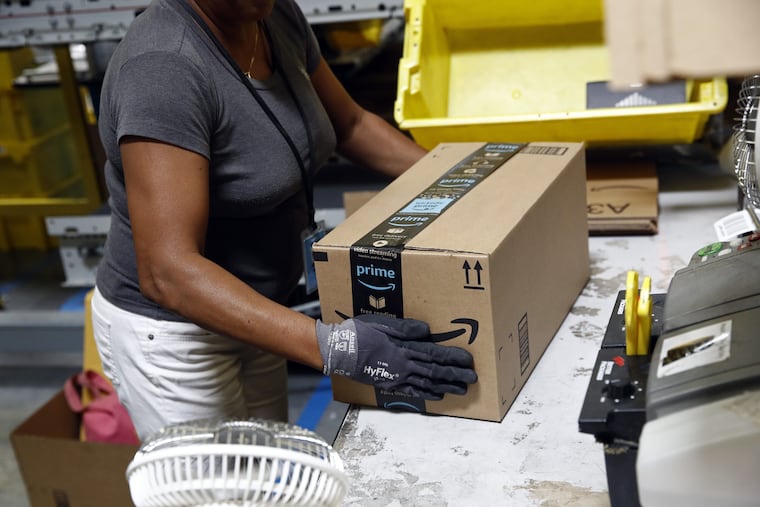Philly’s warehouse-building frenzy has begun. But will good jobs come with it?
How competition for warehouse labor has changed the workplace — and how it hasn't.

The warehouses are coming — and with them, presumably, the jobs.
After years of trailing behind Lehigh Valley's distribution center boom, Philadelphia, it seems, has finally arrived. Developers are so sure of demand that they're acquiring land and building warehouses even before securing tenants, the Inquirer and Daily News' Jacob Adelman reported Monday, calling this kind of speculative development "a practice virtually unheard of in the city until recently."
One major reason developers are betting on Philadelphia? Workers.
In the Lehigh Valley, workers (and land) are in short supply.
"We almost don't have enough people with low skills to fill all the need in the fulfillment industry," Don Cunningham, president and CEO of the Lehigh Valley Economic Development Corporation, told Bloomberg earlier this year.
It's a challenge that distribution centers all over the country are facing, especially now, when unemployment is at its lowest rate in decades. Blog posts abound about how to attract and retain warehouse workers: Wages, they say, for one. (See: Amazon raising its minimum wage to $15 an hour.) Flexibility is another. The motorcycle-gear retailer RevZilla, for example, launched an Uber-like, "flex" staffing program this year geared toward students and parents who can't work full time.
But some strategies speak to a darker side of warehouse work, with corporate blog posts suggesting that you can't get away with not offering paid time off, and that air-conditioning is a nice perk — "Sometimes employees will work for less wage to work in a comfortable environment," advises a blog for a commercial real estate firm.
In addition, Jeremy Davidson of the supply chain services firm Fortna says companies are decking out their fulfillment centers: Under Armour built a fitness facility in its new distribution center right outside of Nashville in 2015. Others have food trucks on-site or reimburse families for child care. Companies have to show off what makes their warehouse an appealing place to work, "down to the bathrooms," Davidson said. "Are there a lot of them? Are they clean?"
The standards, he said, have been raised.
"Pay for performance" culture also has become more common: Workers get a bonus if they complete tasks within a certain time frame or if they don't make many mistakes. One fulfillment center company's blog recommends offering more than monetary perks: good parking spaces, preferred shifts, and products are all good options, it says. (Amazon, for its part, cut its incentive program when it raised its minimum wage.)
Increased competition for warehouse labor may have driven up wages and standards, but some say these jobs are still exploitative and abusive, especially for temp workers.
"Temps don't get benefits. They don't get sick days or vacations. They're not paid a living wage," Mark Meinster, executive director of the Chicago-based Warehouse Workers for Justice, said at a meeting in May to discuss the impact of warehouse development in the city.
In 2012, Mother Jones reporter Mac McClelland wrote about her experience as "a warehouse wage slave" at an unidentified fulfillment center. Workers continue to speak up about poor working conditions. Multiple women working at a Verizon distribution center in Memphis had miscarriages after their employers rejected their requests for "light duty," a recent New York Times investigation found. On Black Friday, thousands of Amazon warehouse workers in Europe once again went on strike.
As the city touts warehouse work as a way to lift Philadelphians out of poverty, it raises a question that's becoming a refrain in certain advocacy circles: Are all jobs created equal? It's one reason that cities across the country, Philadelphia included, are increasingly mandating workplace laws around such issues as minimum wage and predictable scheduling.